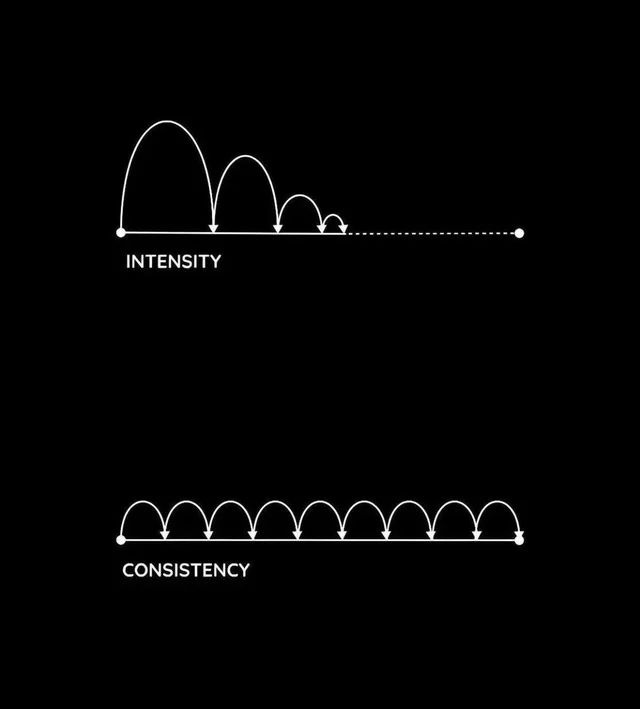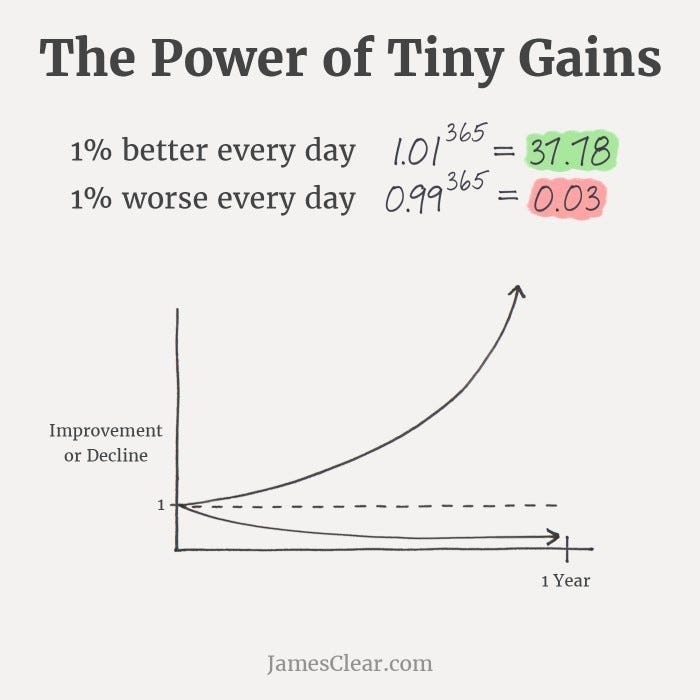The Motivation Myth and the Power of Consistency
Why discipline and motivation isn't as essential as you may think.

If you’re anything like me and have been scrolling through social media lately, you may have come across this image. It’s simple and unbelievably effective at illustrating a concept we may know but not completely understand at its psychological roots. Ah yes, the century-old topic of intensity vs consistency, infamous for its attention among YouTube self-help gurus (I’m looking at you, Ali Abdaal) and book authors. Taking another look at this image, it’s clear that consistency has an edge on intensity for maintaining applied effort over time rather than favoring a burst of productivity that loses its traction.
I remember a few months ago I wanted to build habits for exercising every morning, eating less (I was a chronic overeater) and healthier, and practicing meditation. I created a daily plan for each and every one of the habits I wanted to form, making sure I exercised, logged my food, and meditated at least 20 minutes a day. I developed a whole morning and evening routine and everything, convinced that I could ride this motivation high forever. The next few days, I hit my goals without issue. Eventually, however, I could only muster up the energy to go for a walk, or would “forget” to log my food. Soon, I found myself back at where I started, unaware of what went wrong.
Taking into account my relapse, I adopted another approach. Instead of piling goal after goal on top of each other and simply telling myself I just “needed more discipline,” I picked only one of my goals and evaluated its relative weight among the others (in this case, I picked exercising). Then, for 100 days, I set out to exercise using the “7-minute workout” app. If I missed a day, I started over, and I wouldn’t be allowed to integrate another habit into my routine until I reached the 100-day mark. Though I never reached the 100 day goal, by the time I got past the one month mark, I was practically heading to my home gym on autopilot each morning. I may have missed a day or two every now and then, but the point was that I got right back on track the next day.
Even more surprising was the fact that, after reaching my exercise goals, I had subconsciously started eating healthier foods. This relates to a concept known as “keystone habits,” which is a topic that deserves a post on its own, but is related to your brains’ neuroplasticity and tendency to develop new cue-routine-reward loops (I touch upon this in another post). Habits, in part, are what make consistency so important, and completely throw the idea of needing motivation out the window. Even when the effects of your actions aren’t immediate, through consistency, you’ll build a foundation for exponential long-term growth.


